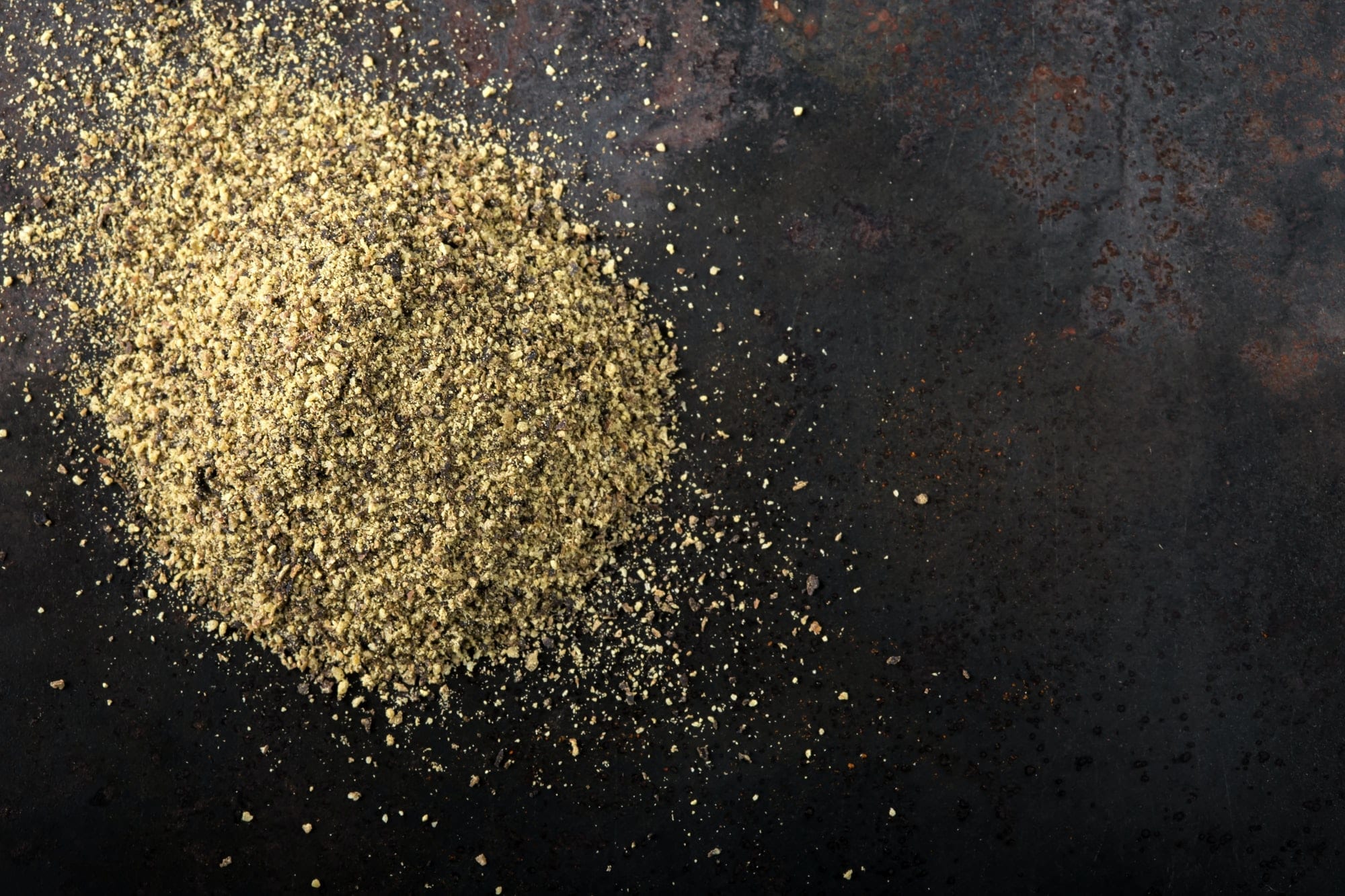
Asafoetida (also known as hing) is a gum from the resin of a variety of giant fennel with a strong overly ripe garlic type smell. It gives a very smooth flavour in dishes.
Asafoetida powder appears as a crumbly yellow powder, which has been diluted with flour or rice flour and turmeric, when purchased as a cooking ingredient.
It can be purchased as full-strength dried gum and will then look like brown powder, but this is strong and is used very sparingly.
Asafoetida powder has a strong smell and should be kept in a tight container to avoid the smell permeating through your kitchen. Its strength deteriorates quickly, and it should therefore not be stored for long periods.
Background of Asafoetida powder
Asafoetida is grown in the Indian peninsula and is known there as the food of the gods.
It comes from a perennial herb called ferula, which is indigenous to the mountains of Afghanistan. The leaves have cabbage like folded heads.
It is thought that asafoetida was brought to Europe by Alexander the Great via Iran, but after the fall of the Roman Empire it became rare in Europe.
Asafoetida powder continued to be used after this time in Indian cooking and medicine.
The plant is cultivated in beds and the leaves and shoots are used in cooking as a vegetable.
Uses for Asafoetida
Asafoetida powder is an essential ingredient of Worcestershire sauce. It is also commonly used as a substitute for garlic.
Generally, when used in a recipe it is used at a ratio of one or two pinches to 250 grams of the main ingredient.
It is especially good in vegetarian dishes (particularly those which are potato or cauliflower based), curries and stews when it gives a smooth onion and garlic flavour.
Garlic salt or onion salt are reasonable alternatives.
Whilst the smell uncooked is strong, once heated in ghee the smell and flavour becomes much milder and is similar to chopped onion of garlic but without the bulk.
Medicinal uses
Asafoetida powder is used in Indian medicine as a remedy for flatulence.
It also has antibacterial qualities and the plant roots are said to have properties that help to produce anti viral medication.
On the Indian continent it is sometimes used to treat indigestion by smearing it onto your abdomen with alcohol or water.

